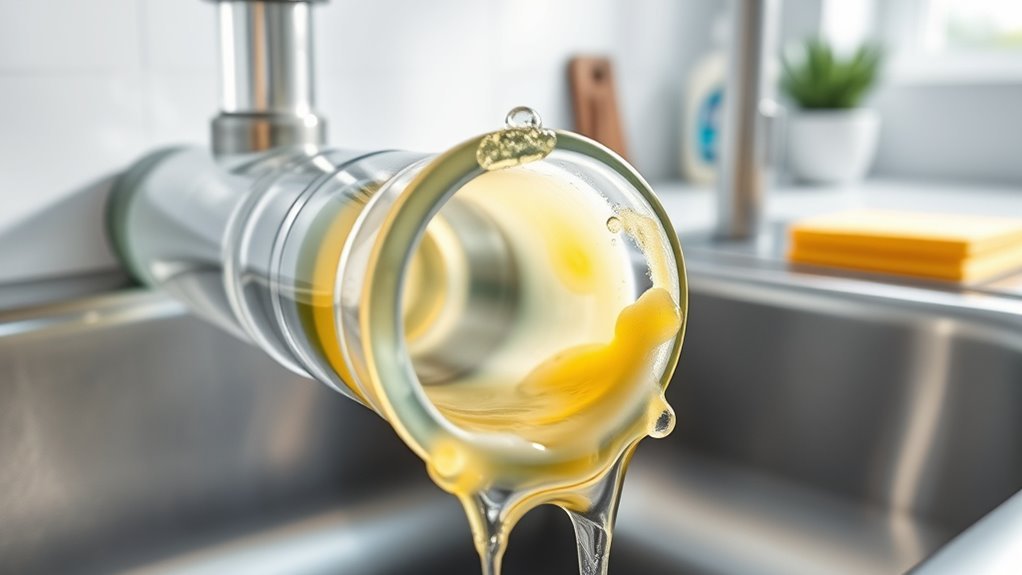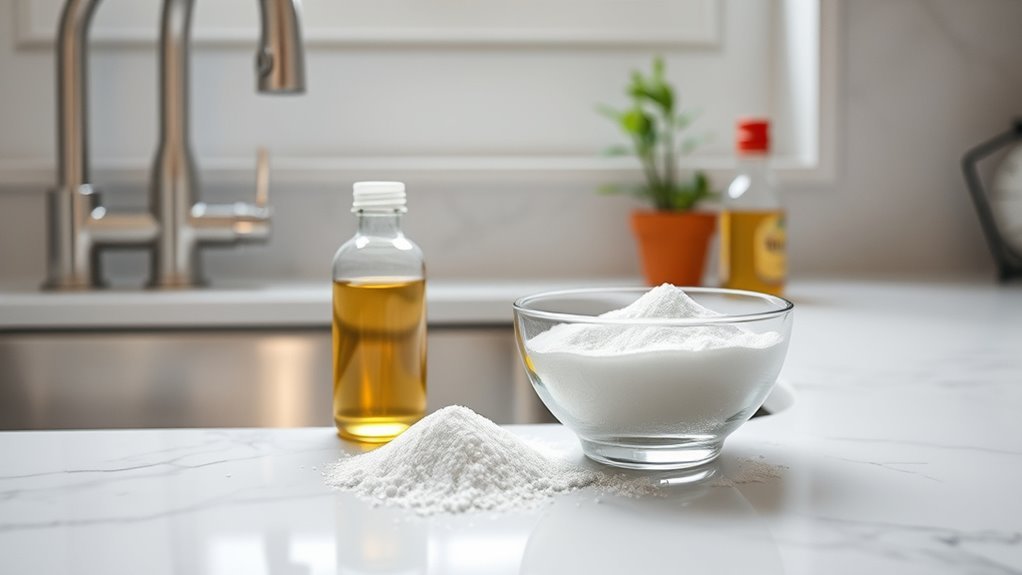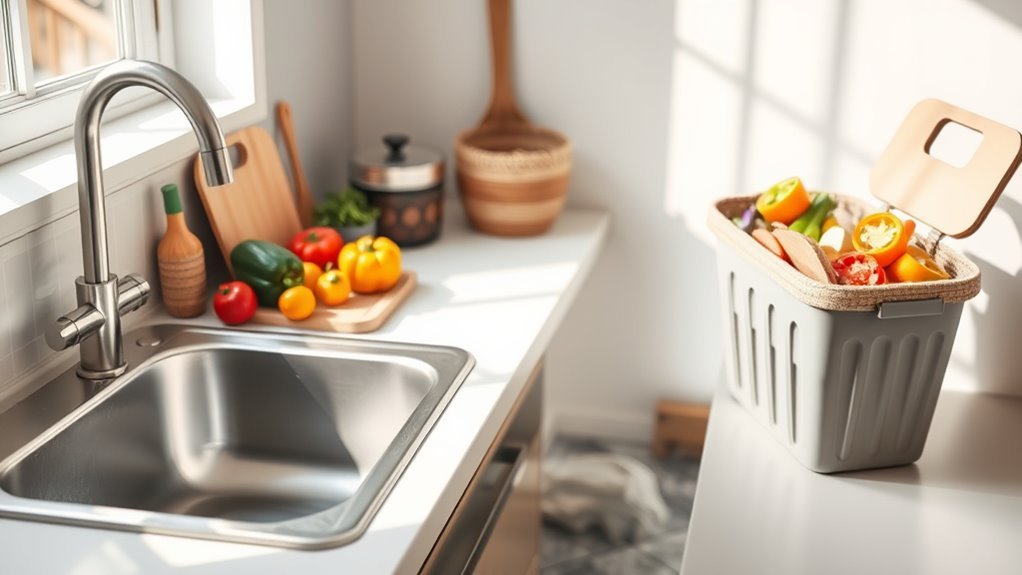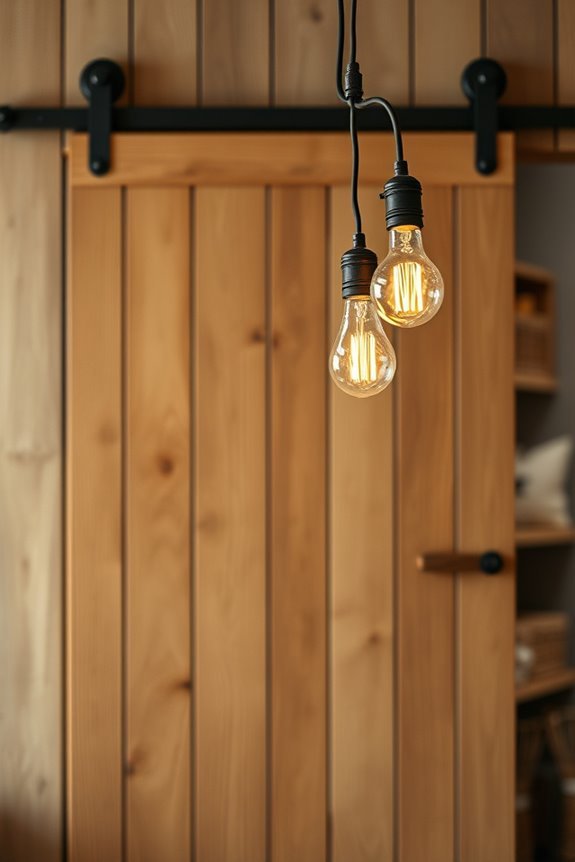How to Dissolve Grease in Pipes and Prevent Future Clogs
To effectively dissolve grease in pipes, combine baking soda and white vinegar, followed by pouring boiling water down the drain. This method breaks down grease and unclogs pipes efficiently. To prevent future clogs, adopt proper disposal practices such as wiping grease off cookware before washing and using sink strainers. Additionally, perform regular maintenance by pouring boiling water down your drains weekly. This proactive approach will help manage grease buildup and maintain clear pipes.
Understanding the Causes of Grease Buildup

Grease buildup in pipes is primarily caused by the disposal of fatty substances down drains, such as cooking oils, butter, and food residues.
These substances can solidify and stick to pipe walls, leading to blockages. Improper disposal practices, like rinsing greasy dishes without scraping them first, worsen the issue.
Additionally, while hot water may temporarily dissolve grease, it can harden again as it cools.
To prevent grease buildup, scrape dishes before washing and avoid pouring fats down the drain.
Understanding these practices is crucial for maintaining a smooth plumbing system.
The Importance of Regular Pipe Maintenance
Regular pipe maintenance is essential for preventing grease buildup and ensuring the longevity of your plumbing system. By routinely inspecting and cleaning your pipes, you can catch potential issues early, before they become major problems. This maintenance helps eliminate accumulated grease, debris, and other substances that can obstruct water flow.
Consider scheduling professional plumbing services for treatments like hydro jetting, which effectively removes stubborn clogs and keeps your pipes functioning optimally.
Additionally, setting a maintenance schedule encourages better disposal habits, such as avoiding pouring grease down drains.
Common Signs of Grease Clogs
Grease clogs can present several clear signs that homeowners should watch for.
Here are the key indicators:
- Slow Drainage: If sinks, tubs, or showers are not draining properly and water is pooling, it could be a sign of a grease clog.
- Foul Odors: Unpleasant smells from drains often indicate decomposing food particles trapped in grease buildup.
- Gurgling Noises: Sounds of gurgling can occur when air struggles to move through blocked pipes.
- Frequent Backups: Regular backups, especially after washing dishes or using the bathroom, suggest significant grease accumulation.
- Increased Water Pressure or Leaks: Unusual water pressure or leaks in the plumbing system can signal underlying grease clogs.
Identifying these signs early can help avoid more serious plumbing issues.
Initial Steps to Clear Grease From Pipes
To effectively clear grease buildup from pipes, start by gathering the following essential materials:
- Baking Soda – This natural abrasive helps break down grease.
- White Vinegar – It reacts with baking soda to dissolve stubborn clogs.
- Boiling Water – This liquefies grease, making it easier to remove.
- Plunger – Use this tool to dislodge any debris after your initial treatment.
Having these items ready will streamline your cleaning process and help alleviate the stress of plumbing issues.
Using Hot Water to Dissolve Grease
Hot water is highly effective for dissolving grease in pipes because it breaks down fatty substances quickly. For optimal results, use water heated to around 140°F to 160°F (60°C to 70°C).
To enhance the effectiveness of hot water, consider running the tap for a few minutes to warm the pipes before applying hot water. Additionally, combining hot water with dish soap can further assist in breaking down tough grease buildup.
This simple method can help keep your pipes clear and prevent clogs.
Benefits of Hot Water
Using hot water is an effective way to clear grease buildup in pipes, ensuring efficient drainage for homeowners.
Here are the key benefits of incorporating hot water into your plumbing maintenance routine:
- Improved Drainage: Hot water dissolves grease and debris, enhancing water flow and preventing clogs.
- Cost Savings: Regularly using hot water can help avoid costly plumbing repairs, making it a budget-friendly solution.
- Eco-Friendly: Hot water reduces the need for harsh chemical cleaners, contributing to a healthier home environment.
- Easy Maintenance: Adding hot water to your cleaning routine can extend the lifespan of your plumbing, providing long-term peace of mind.
These advantages underscore the value of hot water in maintaining a clean and functional drainage system.
Recommended Temperatures
To effectively clear grease from pipes, heat water to around 140°F (60°C). This temperature efficiently dissolves fats and oils, helping them move through the plumbing system.
Avoid using water hotter than 160°F (71°C), as it may damage pipe materials like PVC and older plumbing.
Regular use of hot water at these recommended temperatures can keep pipes clear and reduce the risk of future grease clogs.
Additional Tips for Effectiveness
To effectively dissolve grease and prevent clogs, consider these strategies to enhance your results:
- Mix in Dish Soap: Combining dish soap with hot water helps break down grease more effectively, making it easier to rinse away.
- Utilize Baking Soda and Vinegar: This powerful duo emulsifies grease, adding extra cleaning power.
- Follow with Cold Water: After using hot water, flushing with cold water can solidify remaining grease and push it through pipes.
- Perform Regular Maintenance: Consistently treating your pipes with hot water can keep them clear and minimize the risk of future clogs.
These methods not only improve cleaning efficiency but also help maintain clear plumbing over time.
Homemade Solutions for Grease Removal
Homemade solutions for grease removal effectively clear stubborn clogs without harsh chemicals. A popular method is the combination of baking soda and vinegar. This mixture creates a fizzing reaction that breaks down grease, especially when followed by hot water.
Boiling water alone can also dissolve grease buildup effectively. Additionally, mixing dish soap with hot water serves as a powerful degreaser. For enhanced scrubbing, consider adding salt to the baking soda.
Regular use of these solutions not only clears existing clogs but also prevents future grease buildup in your pipes.
Commercial Drain Cleaners: Pros and Cons
When dealing with clogged drains, many individuals consider using commercial drain cleaners. Here’s a clear overview of their benefits and drawbacks.
Pros:
- Rapid Action: These cleaners work quickly to dissolve grease and clogs.
- Easy to Find: Readily available at local stores for immediate relief.
- Targeted Solutions: Various formulations are designed for specific clogs, increasing effectiveness.
- Strong Formulas: Some cleaners use powerful chemicals to tackle stubborn blockages.
Cons:
- Health Risks: Many contain toxic substances that can be harmful to your health.
- Potential Pipe Damage: Frequent use may lead to corrosion of pipes, resulting in expensive repairs.
- Environmental Concerns: Chemical runoff can negatively affect local ecosystems.
- Not a Permanent Solution: Often, they only provide a temporary fix without addressing the root cause of the clog.
Consider these factors carefully when choosing a drain cleaning method to ensure safety and effectiveness.
The Role of Baking Soda and Vinegar

Baking soda and vinegar form an effective solution for removing grease buildup in pipes. Their reaction helps dislodge debris and is environmentally friendly.
| Step | Action | Result |
|---|---|---|
| 1 | Pour 1/2 cup of baking soda | Begins to break down grease |
| 2 | Add 1/2 cup vinegar | Creates fizzing action |
| 3 | Let sit for 30 minutes | Enhances cleaning effect |
| 4 | Flush with hot water | Removes leftover residue |
| 5 | Repeat monthly | Prevents future clogs |
Using this method regularly can help maintain clear pipes and reduce clogging issues.
Enzyme Cleaners: An Effective Alternative
Enzyme cleaners are highly effective for removing grease buildup in pipes.
These biodegradable solutions break down organic materials, making them a safe choice for the environment.
To achieve optimal results, follow proper application techniques and usage tips to ensure a cleaner plumbing system.
Benefits of Enzyme Cleaners
Enzyme cleaners offer a safe and effective solution for clearing grease from pipes, making them a preferable choice over traditional chemical cleaners.
Here are the key benefits:
- Eco-Friendly: Biodegradable and less harmful to the environment.
- Non-Toxic: Safe for households with children and pets.
- Long-Lasting: Enzymes work over time to help prevent future clogs.
- Cost-Effective: Regular use can minimize the need for costly plumbing repairs.
Switching to enzyme cleaners can enhance your plumbing maintenance while prioritizing safety and environmental care.
Application and Usage Tips
To use enzyme cleaners effectively for breaking down grease and organic matter, follow these steps:
- Choose the Right Product: Select an enzyme cleaner specifically formulated for grease removal.
- Prepare the Area: Remove any standing water to ensure that the cleaner can directly contact the buildup.
- Application: Apply the enzyme cleaner and allow it to sit for several hours or overnight for maximum effectiveness.
- Regular Maintenance: Use the cleaner once a month to prevent future clogs.
- Follow Instructions: Adhere to the manufacturer’s guidelines for dilution and application frequency.
- Routine Maintenance: Combine enzyme cleaners with regular plumbing maintenance to keep pipes clear and functional over time.
Preventing Grease From Entering Your Pipes
To effectively prevent grease from entering your pipes, homeowners should implement simple yet effective strategies in their kitchens and bathrooms.
These measures not only protect plumbing systems but also benefit the environment and help avoid costly repairs.
- Install a sink strainer to catch food particles that can trap grease.
- Wipe pans and dishes with paper towels before washing to eliminate excess grease.
- Inform family members about proper grease disposal methods and the negative effects on plumbing.
- Clean sink drains and traps regularly to prevent buildup and maintain water flow.
Proper Disposal of Grease and Food Waste

Proper disposal of grease and food waste is crucial for preventing plumbing issues and blockages.
To effectively manage these wastes, use designated containers for grease and consider composting food scraps.
Following these best practices not only protects your plumbing but also contributes to a healthier environment and improved waste management.
Best Disposal Practices
Proper disposal practices are crucial for preventing grease buildup in plumbing systems, which can lead to clogs and costly repairs.
Here are four effective disposal methods to maintain a healthy plumbing system:
- Avoid pouring grease down the drain: This can cause severe plumbing problems.
- Use a sealed container: Store leftover grease in a container and discard it in the trash.
- Scrape plates before washing: Remove food remnants to reduce grease entering the pipes.
- Educate everyone in the household: Ensure all members understand the significance of proper disposal.
Implementing these simple practices helps protect your plumbing and the environment.
Composting Food Waste
Composting food waste is an effective, eco-friendly method for managing organic materials, including greasy scraps. Diverting food waste from landfills not only reduces methane emissions but also enhances soil health.
While grease shouldn’t be directly composted, you can manage it by mixing it with absorbent materials like paper towels or dry leaves. This prevents issues in the composting process. A well-balanced composting system can break down small quantities of grease without causing odors or attracting pests.
Installing Grease Traps for Prevention
Installing a grease trap is crucial for any commercial kitchen aiming to maintain an efficient and hygienic drainage system. Here are the key benefits of having a well-installed grease trap:
- Minimize Clogs: Effectively prevents grease and food particles from causing blockages, avoiding costly plumbing repairs and operational downtime.
- Protect the Environment: Helps prevent grease from entering wastewater systems, safeguarding local ecosystems and waterways.
- Enhance Sanitation: Reduces unpleasant odors and deters pests, contributing to a cleaner kitchen environment.
- Save Money: Lowers maintenance costs by reducing the need for frequent professional cleanings and plumbing services.
Investing in a grease trap is a smart decision for any kitchen looking to operate smoothly and sustainably.
The Importance of Regular Drain Cleaning
Regular drain cleaning is crucial for the efficiency and longevity of plumbing systems in commercial kitchens. Accumulation of grease, food particles, and debris can lead to clogs and reduced water flow.
Routine cleaning significantly lowers the risk of blockages, ensuring optimal drainage and performance. It also allows for early detection of potential plumbing issues, which can prevent costly repairs and operational downtime.
Moreover, clean drains help maintain a healthier kitchen environment by reducing odors and minimizing the risk of pest infestations.
Establishing a regular drain cleaning schedule is an effective strategy for maintaining plumbing health and promoting a sanitary kitchen operation.
When to Call a Professional Plumber
When should you hire a professional plumber? Here are the key signs that indicate it’s time to seek expert help:
- Persistent Slow Drainage: If your drains continue to be slow despite trying home remedies, this may signal a deeper plumbing issue.
- Recurring Clogs: Frequent clogs that keep returning suggest an underlying problem that DIY solutions can’t fix.
- Unpleasant Odors or Gurgling Noises: Strange smells or gurgling sounds from your pipes may indicate trapped air or buildup that needs professional attention.
- Extensive Grease Buildup: If grease accumulation is significant, attempting to resolve it on your own could lead to further damage.
Recognizing these signs early can help you avoid more serious plumbing problems.
Seeking professional help ensures a long-term solution to your plumbing issues.
Long-term Solutions for Grease Management
To effectively manage grease and prevent plumbing issues, focus on regular maintenance and proper disposal methods.
Implementing routine practices can significantly reduce the risk of grease buildup in your pipes, ensuring a healthier plumbing system for your household.
Prioritizing these long-term strategies not only prevents blockages but also enhances the longevity of your plumbing infrastructure.
Regular Maintenance Practices
Maintaining grease buildup in pipes is crucial for preventing clogs and expensive repairs. Here are essential maintenance practices to keep your plumbing system clear:
- Regular Inspections: Conduct routine checks to spot any early signs of grease accumulation.
- Hot Water Flushes: Pour boiling water down your drains weekly to dissolve any grease that may have started to collect.
- Biological Agents: Use enzyme-based cleaners monthly to naturally break down grease and prevent future buildup.
- Grease Traps: Install grease traps in kitchens to capture fat and oil before they enter your plumbing system.
Grease Disposal Guidelines
Grease disposal down the sink may seem convenient, but it can lead to significant plumbing issues, including clogs and costly repairs. To ensure the health of your plumbing, follow these effective grease disposal methods:
| Disposal Method | Description | Benefits |
|---|---|---|
| Solidify and Trash | Allow grease to cool, then scoop into a container for disposal. | Prevents pipe clogs. |
| Reuse | Strain and store grease for future cooking. | Reduces waste and saves money. |
| Composting | Add small amounts to compost in moderation. | Eco-friendly option. |
| Recycling | Check local programs for cooking oil recycling. | Supports sustainability. |
| Professional Disposal | Hire services for large quantities. | Ensures safe disposal. |
Conclusion
To effectively dissolve grease buildup in your pipes and prevent future clogs, it’s crucial to understand the causes and take proactive measures. Start by regularly cleaning your drains and considering the installation of grease traps to capture buildup before it enters your plumbing system. Pay attention to early signs of clogs, such as slow drainage or unpleasant odors, and address them promptly. If you encounter persistent issues, don’t hesitate to seek professional assistance for thorough cleaning and maintenance. By implementing these strategies, you can maintain a smooth-flowing drainage system and avoid costly repairs.

